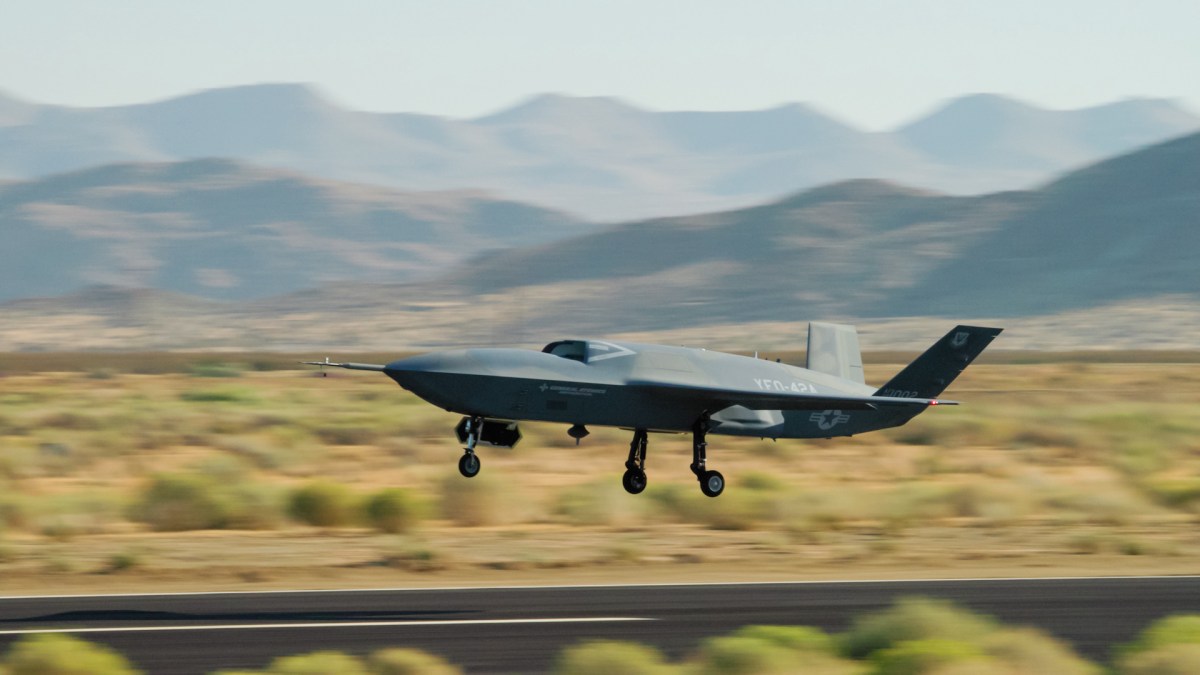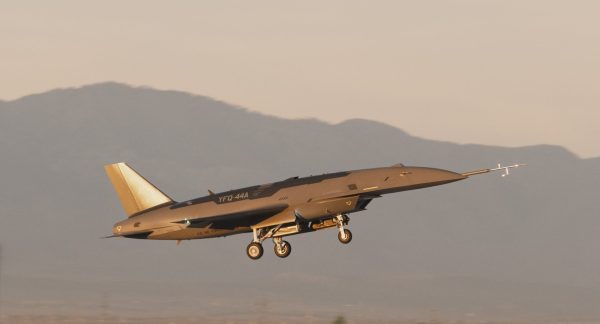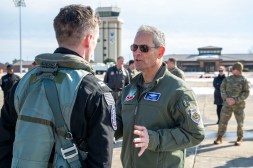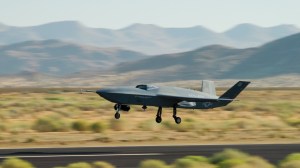General Atomics begins flight tests for Air Force CCA drone program

The Air Force has kicked off the much-anticipated live flight testing phase for its Collaborative Combat Aircraft (CCA) program, the service announced Wednesday.
General Atomics recently began flight testing of its CCA Increment 1 prototype, dubbed the YFQ-42A, at an unnamed location in California to evaluate the platform’s “airworthiness, flight autonomy and mission system integration,” the Air Force said in a press release. The tests represent a critical milestone for the drone program and pave the way towards a final production decision that’s expected in fiscal 2026.
The robotic fighter jets are part of the Air Force’s Next Generation Air Dominance (NGAD) family of systems and are expected to fly alongside the service’s manned sixth– and fifth-generation platforms to conduct a range of missions — from offensive strike to intelligence gathering. The service has previously said it wants to buy up to 1,000 Increment 1 CCA drones and begin fielding sometime before 2030.
“This milestone showcases what’s possible when innovative acquisition meets motivated industry,” Secretary of the Air Force Troy Meink said in a statement. “In record time, CCA went from concept to flight — proving we can deliver combat capability at speed when we clear barriers and align around the warfighter.”
General Atomics and Anduril received contracts for the first CCA increment in 2024, and have since built their prototypes, completed critical design reviews and conducted ground testing to prepare for first flights. Separately, the service is also working with a pool of unnamed vendors to develop the autonomy software for the drones.
“It’s been our collaboration [with the Air Force] that enabled us to build and fly the YFQ-42A in just over a year. It’s an incredible achievement and I salute the Air Force for its vision and I salute our development team for delivering yet another historic first for our company,” GA-ASI President David R. Alexander said in a statement.
An Anduril spokesperson said in a statement that flight tests of its CCA offering — the YFQ-44A — “will begin soon.”
The Air Force is taking a rapid and flexible approach with the CCA program and plans to field the aircraft in increments, with each batch offering slightly different capabilities. At least one of the prototypes for Increment 1 will head into production, but the service intends to allow other firms besides General Atomics and Anduril to also compete for the contract.
According to the service, the program’s “multi-faceted learning campaign” includes developmental testing led by vendors, independent evaluations at Edwards Air Force Base in California, and operational assessments by the designated Experimental Operations Unit at Nellis Air Force Base in Nevada.
“We’re not just moving fast — we’re learning fast,” Air Force Chief of Staff Gen. David Allvin said in a statement. “CCA will help us rethink the battlespace, extend reach, flexibility and lethality in combat operations, and optimize warfighter performance through human-machine teaming.”






